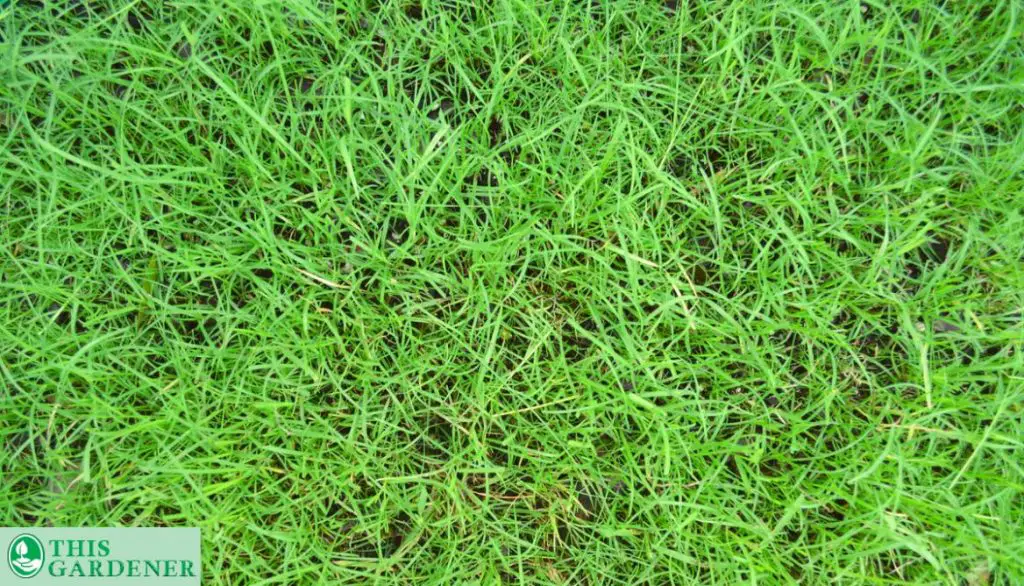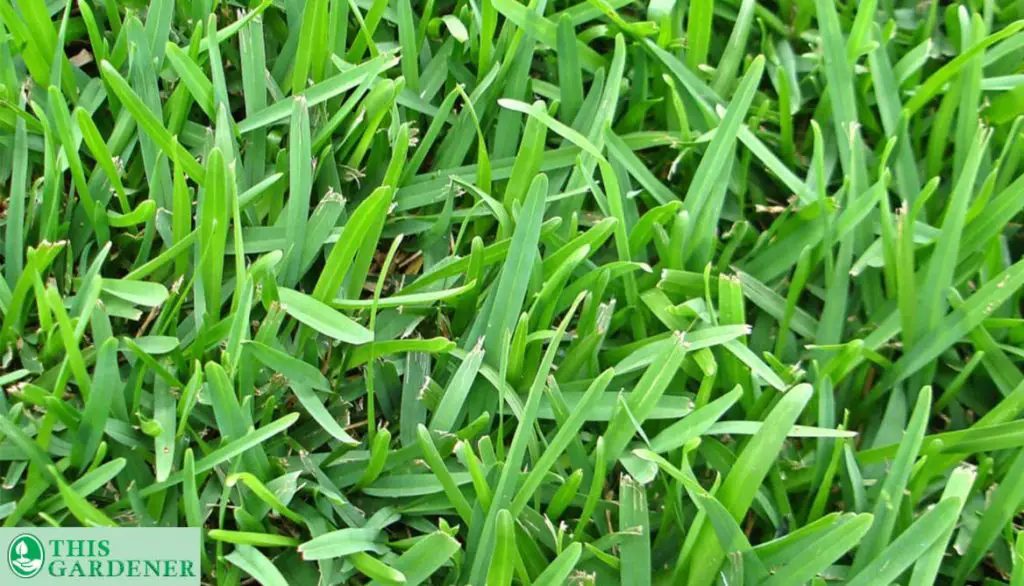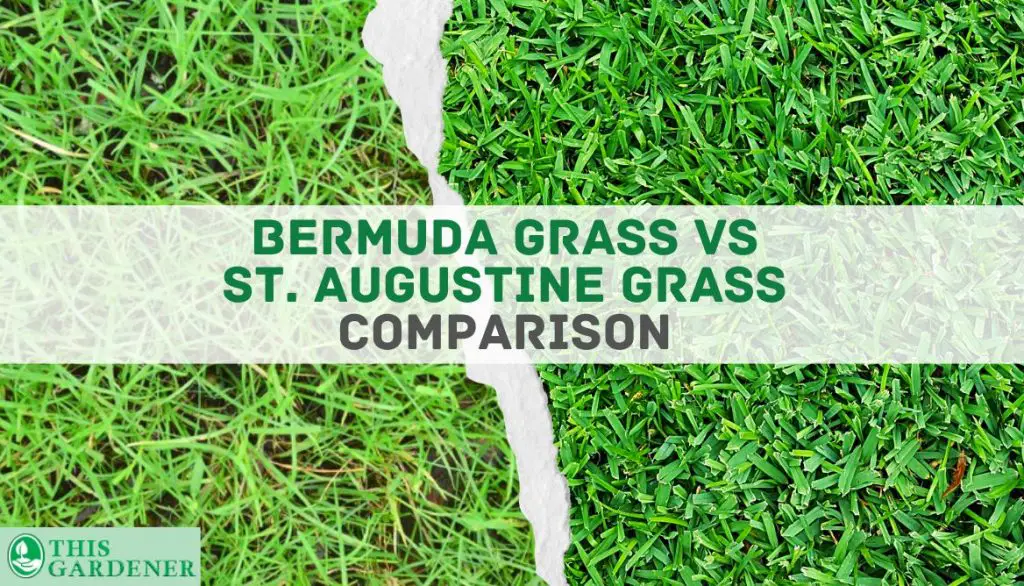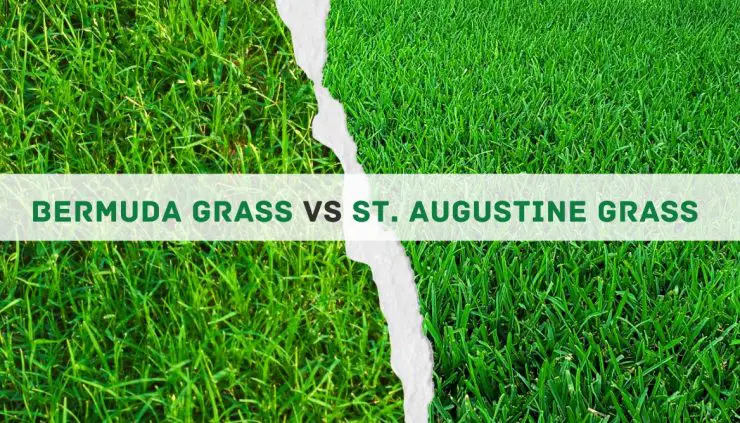St. Augustine is a very rapidly growing grass that grows extremely well in warm seasons and in the southern part of the country. Many people easily confuse this grass with Centipede grass which has similar but narrow leaf blades.
Homeowners choose St.Augustine for its bright to medium green appearance and thick turf. Also, people who have a lawn that has shade would prefer this over Bermuda. And if you live near the sea then it is also an exceptional choice as it is salt tolerant.
Bermuda grows well in the warm season even with average maintenance. People choose this grass type for its drought resistance, fewer pest problems, and average maintenance cost. Let’s hop into the details for a complete review.
Contents
Highlights
- Bermuda is an exceptional weed killer.
- It is one of those grasses that will not dry in drought conditions.
- The water requirement is average and can grow well on twice a week watering.
- St. Augustine is an extremely versatile grass.
- For ideal growth, Augustine requires high-quality fertilizer twice a year.
- Augustine can withstand winter and shade excellently.
A Quick Comparison of Bermuda vs St Augustine
If you are choosing warm season grass or cold season grass then make sure to check on the climate type of your region. Bermuda is better in drought conditions than Augustine. Though lacks shade tolerance.
You can expect St.Augustine to be more suitable for lawns than Bermuda is suitable for sports fields.
Key Differences Between Bermuda vs St Augustine
Some of the most notable differences between both are mentioned below:
Parameters | Bermuda Grass | St.Augustine Grass |
Shade tolerant | Full sunlight all day long | Tolerates shade |
Water | Need watering 3 times a week | Requires a lot of water |
Sunlight | Stands a high amount of heat | 5 hours of sunlight every day |
Cost-efficient | Cost-efficient to grow | Demands a lot of fertilizer |
Traffic torelance | Suitable for lawns | Suitable for lawns |
What is Bermuda?

Bermuda grass is a perennial grass that grows excellently in warm temperatures. It is best suited as a lawn grass and fields. It is a type of grass seed that is common in the southern part of the US.
Identifying Features of Bermuda
Some very distinct features that make the grass easily identifiable are:
- It has tiny hairs on the leaves.
- You will notice a coarse texture on the grass.
- It spreads via an aggressive root system called stolons.
- It contains a seed head that looks like a bird’s feet.
- It is dark green color or brownish purple in color.
What is St Augustine?

It is one of the most popular grass types in Florida and some other warm-season areas. The lush green turf it gives lawns is one of its main features that you will notice.
Identifying features of St Augustine
St. Augustine has wide and rounded leaves. The leaves are uniquely arranged in opposite directions and they have medium or dark green color leaves.
Comparing Bermuda vs St Augustine

We can easily highlight some of the areas where one grass shines above the other. It is these unique traits that make both these grasses fit for certain areas and specific uses.
Appearance
Bermuda Grass has a purplish-green color to its leaves and the leaves have a very distinct seed head that is shaped like a bird’s foot. It grows at a length of 4-12 inches long.
On the other hand, Augustine grass is a medium or dark green colored grass that has unique leaf shapes. The most common identification is the oppositely arranged leaves.
Behavior against weeds and growth habits
Both Bermuda and St.Augustine will choke out any weeds that invade their territory. While St.Augustine is hard to grow due to high expense, you can easily invest less money to grow a better Bermuda grass lawn that would require less frequent mowing.
St.Augustine and Bermuda grass are very aggressive grass species that grow and spread via above-the-ground runners.
Best Uses for Bermuda and St Augustine
Bermuda grass is a very tolerant grass type that can withstand high traffic and recover damage easily. It can be grown in places where there are sports activities with a high amount of people walking by such as sports fields, grounds, and golf courses.
St. Augustine is a very tough and durable grass that can handle heavy traffic. You do not have to be worried while playing any type of sport on this grass.
Soil Types and pH Needs
If we talk about soil types then the best soil type for St. Augustine is well-drained soil with an excess quantity of sand and a pH level of 5.0-8.5. While Bermuda grows best in soil that has organic material and a high amount of water. The optimum pH is 5.5-7.0.
Water Needs
Bermuda Grass is a drought-resistant grass and has a very shallow root system. The grass can survive on watering twice a week An even 1-1.5 inch water level will do wonders!
St. Augustine needs a lot of water to maintain. Although, the grass is tolerant to heat and sunlight its water requirements are high.
Fertilizer requirements
Comparing Bermuda grass vs St. Augustine, both types of grass have very different fertilizer needs when growing as a lawn grass seed.
The St. Augustine grasses require a lot of nutrients and therefore are a fertilizer-intensive grass type. You need to fertilize it after 2 months duration. Or you can opt for a slow-release nitrogen fertilizer that will nurture the grass for the next 10 weeks.
Bermuda grass in comparison to St.Augustine will also require fertilizer but only twice a year. And the most ideal time to fertilize the grass is during December and January.
Sun, Shade, and Temperature Requirements
Both types of grass need around 6-8 hours of sunlight and can tolerate direct sunlight. The ideal temperature range for Bermuda grass is 95-100 °F. While for St. Augustine it is 80-100 °F.
St. Augustine will grow without any problem in the shade by Bermuda grass will not be able to withstand even the slightest condition of shade.
Durability and Mowing the grass
Both Bermuda and St. Augustine have to be mowed once a week. But the length that it should be cut down to is very different. St. Augustine grass has to be cut at least 3-4 inches every week. But Bermuda can be cut to a minimum of 1 inch if you want to maintain your bermuda lawn.
Common Pests and Diseases
Common diseases found in Bermuda grass are dollar patch, brown patch, and leaf spot. While pests that are the enemy of this type of grass are grubs, ground pearls, mole crickets, bermudagrass mites, and nematodes.
St. Augustine grass faces Chinch bugs as a common pest. The disease commonly found in St. Augustine Grass is known as the decline virus (SADV). Although, a wide variety of bugs love to feed off this type of grass.
Comparing Mowing Needs of Bermuda Grass vs St Augustine
Both Bermuda and St Augustine grass requires mowing. Although, both have very different mowing needs and have to be mowed accordingly. Bermuda grass and St. Augustine grass need to be mowed once a week.
Cost of Maintenance
St. Augustine grass is a very high-maintenance grass. The fertilizer requirement for Augustine lawns is what makes them expensive. Bermuda grass does not require much maintenance but it needs average maintenance in comparison.
Bermuda vs St Augustine: Which Option is Right for You?
If you are planning to maintain a lawn and your lawn is shade-free then Bermuda grass is the best choice for you even if you are the Bermuda grass cultivars.
St. Augustine has advantages but its watering needs and high maintenance make it a very hard choice. Bermuda takes the win as a preference as the tolerance bermuda grasses have is very impressive!
Choosing the Best Option for Climate
St. Augustine will perform better in the warm season. As it is a warm season grass with an ideal temperature of 65-75 degrees, will not be able to tolerate the cold season.
Bermuda on the other hand will outperform St.Augustine grass. It grows well even in hot weather conditions with temperatures soaring to 80-100 degrees. And even during this hot weather, bermuda grasses will be highly drought tolerant. You can expect your Bermuda lawns to withstand direct sunlight easily.
Growing zones
If we talk about the growing zones for both Bermuda and St. Augustine, then Bermuda grows the best in 7 to 10 zones according to the USDA. While St. Augustine grows best in 8 to 10 (growing excellently in zone 10).
Choosing the Best Option Based on Maintenance
If you are choosing hassle-free grass then Bermuda grass is highly recommended. It is very budget-friendly and also requires average maintenance. So, in a choice between Bermuda grass vs St Augustine, Bermuda grass takes the win!
Choosing the Best Option Based on Susceptibility to Pests and Disease
If you want a pest-free experience then Bermuda grass is the choice for you. Both types of grass have pests in them. An Augustine lawn will have more enemies than Bermuda grass.
What are the similarities between Bermuda and St. Augustine Grass?
Let’s mark some of the similarities of both the grasses:
- Both types of grass are warm-season grasses.
- They both can tolerate heat.
- You can expect a dense turf from both grass types.
- Both of them are dark green-colored grass types.
FAQ
Can You Mix Bermuda and St. Augustine Grass?
You can definitely mix Bermuda and St. Augustine grass together. Both types of grass support each other excellently.
Will St. Augustine choke out Bermuda?
Being an aggressive grass type, St. Augustine is grown in specific climate types in order to give it a full advantage to grow out. And in ideal conditions, it will choke out Bermuda grass for sure.
How can you tell the difference between St. Augustine and Bermuda?
The best way to identify Bermuda and St. Augustine grass is through the width of the grass blade. St. Augustine has a wider blade while the other has a thin hair or needle-like blade.
Does St. Augustine grass spread quickly?
If given the ideal conditions, it will spread very quickly. Many experts have labeled this grass type as a very aggressive species of grass.
Is Bermuda grass hard to grow?
No. In fact is much easier to grow as it is compatible with various soil types and can tolerate many things such as heat, sunlight, and traffic.
Will Bermuda grass crowd out weeds?
Yes, Bermuda grass has the upper hand when it comes to choking out weeds. It will quickly overpower the weed growth and kill it easily.
Is Bermuda grass hard to maintain?
The only downside is that Bermuda grass has its shade. If other growth conditions are met then it grows without any hassle. Thus, it is easier to grow.
What kills St. Augustine grass?
Lack of sufficient watering is what kills it. If you want to maintain St. Augustine then be very careful to water it on time.
Is St. Augustine grass hard to maintain?
It is an excellent choice for your lawn or any other area. Heat, sunlight, and shade tolerance make it a perfect choice for you.
What grass mixes well with Bermuda?
Some of the most famous choices to mix with Bermuda grass are Centipede grass and St. Augustine grass.
Conclusion
If growing grass on your lawn is a hassle then choosing the suitable type among these two will be the key factor for a lush and aesthetic lawn. You need proper maintenance and care to avoid any brown patch on your lawn. And the key factor is watering, fertilizing, mowing, and pest control.
If these aspects are kept in check then growing any of these two will be a walk in the park for you for sure! It is totally on you which grass you choose according to your need! Let us know about your preference in the comments section.
References
- How to Get Potatoes to Sprout Eyes: Detailed Growing Guide with 3 Options - July 31, 2023
- Weight of a Medium Potato: Revealed in Detailed Guide - July 29, 2023
- Maris Piper Potatoes: 9 Substitutes You Should Know About - July 27, 2023
Hello! I’m Jessica Zander, a garden coach and consultant based in the Boston area (zone 6b), offering virtual consultations across the country and Canada.
I’ve been passionate about gardening since the early 1990s, and in 2022, I launched You Can Do It Gardening to empower individuals to feel more confident in their gardening endeavors.
Following a 30-year career in nonprofit finance and operations, I transitioned out of that field in mid-June of 2023 due to the growing demand for coaching services. Interestingly, my years of presenting financial statements to boards and finance committees proved to be valuable experience for teaching people about gardening! I enjoy sharing skills, providing guidance and suggestions, and collaborating efficiently with clients to make significant improvements to their outdoor spaces, both small and large. I also regularly teach at the Arlington Continuing Education and Cambridge Adult Education.
My approach is direct and practical, akin to Mary Poppins, but tailored to your garden. Clients find satisfaction in saving money and taking pride in their own gardening achievements.



Add comment